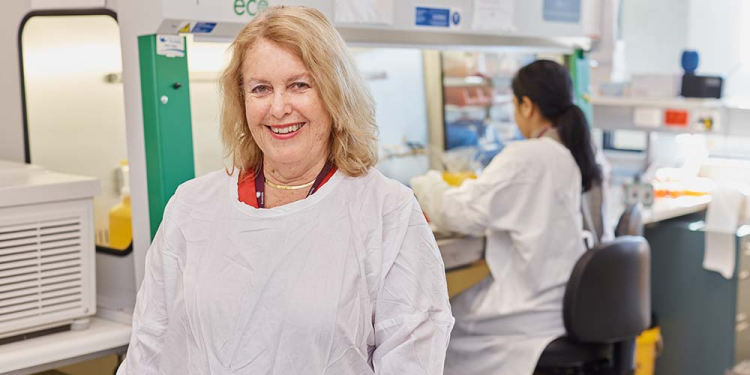
The International Papillomavirus Society (IPVS) has revealed that a single dose of preventative HPV vaccine should be enough to stop it spreading and causing several kinds of cancer. It’s welcome news for Professor Suzanne Garland, whose work has been vital to Australia’s HPV vaccination program as well as vaccine programs around the world.
The world is a major step closer to being able to effectively eliminate cervical cancer, with the world authority on human papillomavirus (HPV), IPVS, indicating that one dose could replace two as an effective way to prevent the transmission of HPV.
It follows an interim recommendation from the UK Government, which intends to shift to a ‘single dose schedule’. The ground-breaking news has been welcomed by Professor Garland, Director of the Women’s Centre for Infectious Diseases, Advisor to the World Health Organization and President of IPVS.
“When we started vaccinating young people against HPV in 2007, three doses was the norm. To now shift from a pair of vaccinations to potentially one alone, shows just how much time and effort has gone into this area of research in the last decade and a half,” she said.
“Ultimately this is the news we’ve been waiting for, and not just in Australia, but in resource-poor countries all over the world. I am so proud that the Women’s continues to play such a big role in this area.”
HPV can cause a variety of cancers – including cervical cancer which claimed 342,000 lives worldwide in 2020. A proportion of anal, vulva, head and neck cancers can also be caused by the HPV virus.
While it was revealed in 2021 that Australia was well on the way to eliminating cervical cancer, this single-dose milestone means that prevention is more achievable outside of wealthy, developed nations.
Professor Garland said the World Health Organization and Strategic Advisory Group of Experts on Immunization were reviewing data and are expected to make recommendations in the near future.
“While today’s news is fantastic, we still need to wait for the final approval from world health authorities, and whether official medical advice will ultimately change,” she said.
“This is very heartening, especially after the COVID-19 pandemic and the immense challenges it brought to the medical world. Within months we’ll know if this single HPV vaccine will be the way of the future.”
|
Friday 4 March is International HPV Awareness Day. Almost all of us will have HPV at some point and while for most of us it isn't harmful, HPV is linked to several kinds of cancer. |